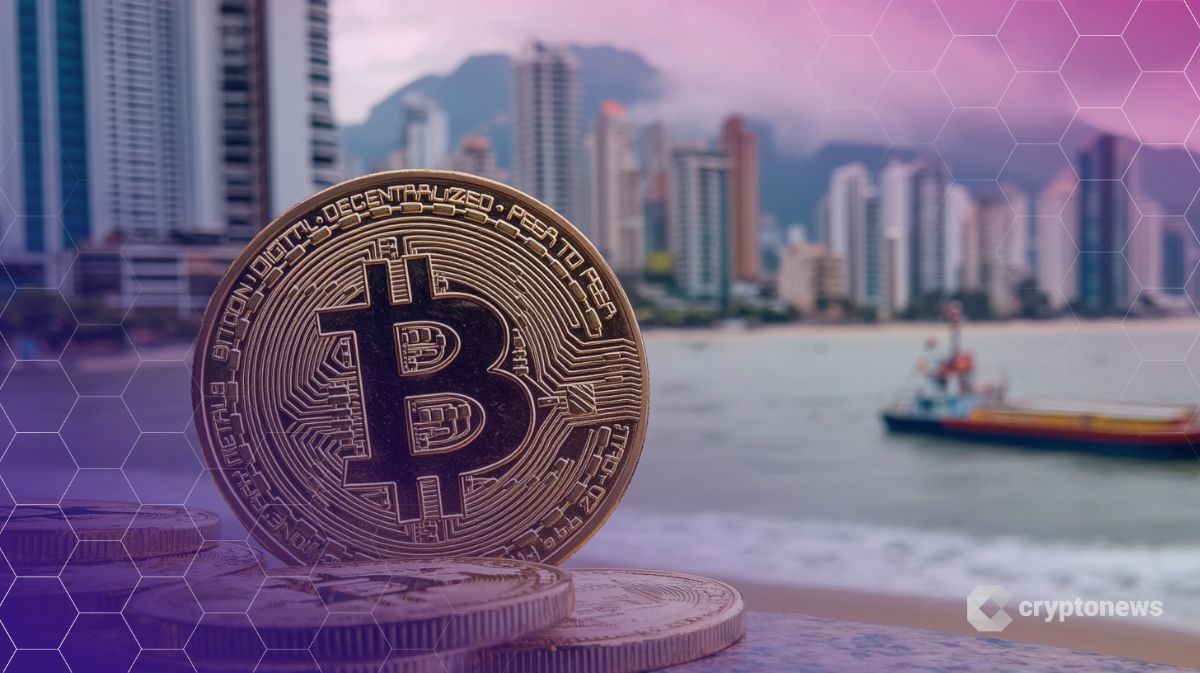Swedish Lawmakers Urge Finance Minister to Explore National Bitcoin Reserve

Two Swedish lawmakers called on the country’s finance minister to seriously consider Bitcoin as a part of Sweden’s national financial strategy.
In a letter submitted on April 14 to Finance Minister Elisabeth Svantesson, Member of Parliament Dennis Dioukarev urged the government to explore including Bitcoin in Sweden’s foreign exchange reserves.
Their appeal to Svantesson is rooted in Bitcoin’s monetary properties, which they argue are comparable to gold, and its growing use as a financial tool for people facing economic volatility and political oppression.
Both lawmakers suggest that Sweden should begin accumulating Bitcoin through direct policy or a budget-neutral method, such as retaining Bitcoin seized by law enforcement instead of auctioning it off.
However, their calls come as Swedish authorities remain highly skeptical of the crypto industry. They recently cracked down on exchanges and miners over tax and compliance concerns.
Sweden’s Push for Financial Sovereignty
At the core of the Swedish lawmakers’ proposal is the belief that Bitcoin could serve as a digital gold, an asset capable of retaining value in times of economic upheaval.
In his letter dated April 8, MP Rickard Nordin clarified the argument:
Nordin urged the finance minister to give Sweden’s central bank, the Riksbank, the legal flexibility to add Bitcoin to its reserves, an idea gaining momentum globally.
He stated that Bitcoin is a financial instrument that safeguards democratic values, especially where authoritarian regimes control fiat currencies.
Interestingly, Nordin proposed a budget-neutral approach, drawing inspiration from the U.S. model.
Sweden could build a reserve without allocating taxpayer money by retaining seized Bitcoin rather than selling it.
This method has allowed the U.S. government to quietly build up large amounts of BTC, a move formalized in March when Donald Trump signed an executive order making Bitcoin part of the national reserve framework.
MP Dennis Dioukarev’s letter submitted on April 14 reinforces the same message.
He called attention to the international trend of accumulating Bitcoin and questioned whether Sweden’s finance ministry had any strategy to follow suit.
A Global Trend Meets Local Resistance
While the political momentum for a Swedish Bitcoin reserve is gaining traction, the country’s broader stance toward crypto remains ambivalent, if not outright hostile.
Recent enforcement actions suggest major regulatory headwinds. In 2024 alone, Swedish authorities have intensified scrutiny over crypto-related activities.
The Swedish Police Authority and the Financial Intelligence Unit labeled several crypto exchanges as “professional money launderers,” accusing them of facilitating illicit cross-border transactions.
The Swedish Tax Agency also uncovered rampant tax evasion in the mining sector. Of 21 Bitcoin mining operations investigated between 2020 and 2023, 18 submitted misleading or false tax reports, leading to an estimated $90 million in unpaid taxes.
These findings have made it difficult for the government to trust the sector fully.
The combination of financial irregularities, regulatory gaps, and international pressure to ensure compliance with FATF guidelines has created a cautious climate.
This may partly explain why Sweden has yet to articulate a formal stance on Bitcoin reserves despite the clear political push.
Still, there are signs of progress. In February, Klarna, Sweden’s fintech giant, announced its intention to integrate crypto into its platform ahead of a public listing.
Such a move shows increasing mainstream interest and could affect broader policy decisions.
Whether Minister Svantesson will act on these recommendations is still unclear, but the debate is now firmly part of Sweden’s financial discourse.
The post Swedish Lawmakers Urge Finance Minister to Explore National Bitcoin Reserve appeared first on Cryptonews.
Read More

Panama City Mayor Teases Bitcoin Reserve Plan After Meeting El Salvador Officials
Swedish Lawmakers Urge Finance Minister to Explore National Bitcoin Reserve

Two Swedish lawmakers called on the country’s finance minister to seriously consider Bitcoin as a part of Sweden’s national financial strategy.
In a letter submitted on April 14 to Finance Minister Elisabeth Svantesson, Member of Parliament Dennis Dioukarev urged the government to explore including Bitcoin in Sweden’s foreign exchange reserves.
Their appeal to Svantesson is rooted in Bitcoin’s monetary properties, which they argue are comparable to gold, and its growing use as a financial tool for people facing economic volatility and political oppression.
Both lawmakers suggest that Sweden should begin accumulating Bitcoin through direct policy or a budget-neutral method, such as retaining Bitcoin seized by law enforcement instead of auctioning it off.
However, their calls come as Swedish authorities remain highly skeptical of the crypto industry. They recently cracked down on exchanges and miners over tax and compliance concerns.
Sweden’s Push for Financial Sovereignty
At the core of the Swedish lawmakers’ proposal is the belief that Bitcoin could serve as a digital gold, an asset capable of retaining value in times of economic upheaval.
In his letter dated April 8, MP Rickard Nordin clarified the argument:
Nordin urged the finance minister to give Sweden’s central bank, the Riksbank, the legal flexibility to add Bitcoin to its reserves, an idea gaining momentum globally.
He stated that Bitcoin is a financial instrument that safeguards democratic values, especially where authoritarian regimes control fiat currencies.
Interestingly, Nordin proposed a budget-neutral approach, drawing inspiration from the U.S. model.
Sweden could build a reserve without allocating taxpayer money by retaining seized Bitcoin rather than selling it.
This method has allowed the U.S. government to quietly build up large amounts of BTC, a move formalized in March when Donald Trump signed an executive order making Bitcoin part of the national reserve framework.
MP Dennis Dioukarev’s letter submitted on April 14 reinforces the same message.
He called attention to the international trend of accumulating Bitcoin and questioned whether Sweden’s finance ministry had any strategy to follow suit.
A Global Trend Meets Local Resistance
While the political momentum for a Swedish Bitcoin reserve is gaining traction, the country’s broader stance toward crypto remains ambivalent, if not outright hostile.
Recent enforcement actions suggest major regulatory headwinds. In 2024 alone, Swedish authorities have intensified scrutiny over crypto-related activities.
The Swedish Police Authority and the Financial Intelligence Unit labeled several crypto exchanges as “professional money launderers,” accusing them of facilitating illicit cross-border transactions.
The Swedish Tax Agency also uncovered rampant tax evasion in the mining sector. Of 21 Bitcoin mining operations investigated between 2020 and 2023, 18 submitted misleading or false tax reports, leading to an estimated $90 million in unpaid taxes.
These findings have made it difficult for the government to trust the sector fully.
The combination of financial irregularities, regulatory gaps, and international pressure to ensure compliance with FATF guidelines has created a cautious climate.
This may partly explain why Sweden has yet to articulate a formal stance on Bitcoin reserves despite the clear political push.
Still, there are signs of progress. In February, Klarna, Sweden’s fintech giant, announced its intention to integrate crypto into its platform ahead of a public listing.
Such a move shows increasing mainstream interest and could affect broader policy decisions.
Whether Minister Svantesson will act on these recommendations is still unclear, but the debate is now firmly part of Sweden’s financial discourse.
The post Swedish Lawmakers Urge Finance Minister to Explore National Bitcoin Reserve appeared first on Cryptonews.
Read More

 Swedish MP Rickard Nordin has introduced a motion to add Bitcoin Reserve to Sweden’s national holdings, citing economic uncertainty and the need for fiscal diversification.
Swedish MP Rickard Nordin has introduced a motion to add Bitcoin Reserve to Sweden’s national holdings, citing economic uncertainty and the need for fiscal diversification.
